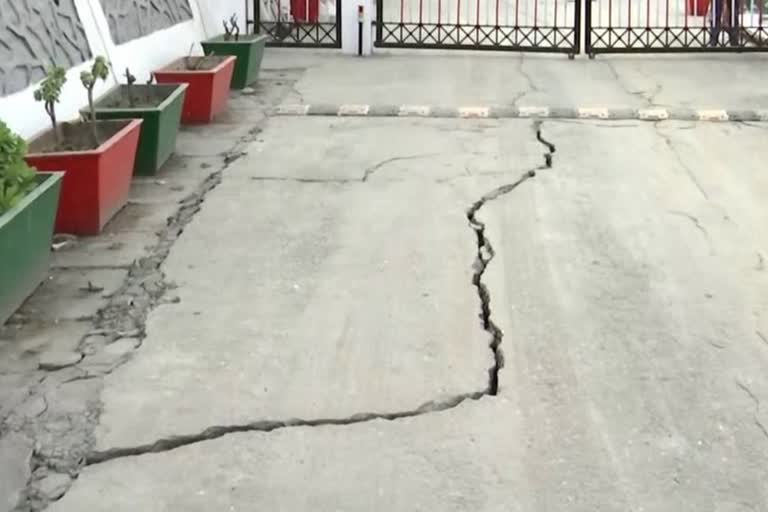Dehradun: Amid land subsidence in Uttarakhand's Joshimath, which has forced the administration to shift the locals to safer places, experts warned about a massive disaster in the making in view of the large-scale construction works underway in the Himalayan state. Experts warned that the current situation might only be the tip of the iceberg saying that in the future if nature is exploited in the state, the consequences could be worse.
Counting development projects, including the Rishikesh-Karnprayag railway line in Uttarakhand or other projects, being executed by the Central and State governments, experts said that the projects made for human “convenience” could come at a heavy human cost. Be it the Rishikesh-Karnprayag rail line or the “all-weather roads”, for which even more mountains will be excavated in the future, the projects pose a huge risk of landslides.
As per an official, in the coming five years, Uttarakhand will be the first hilly state in the country to have the maximum number of tunnels. Experts are worried that the way mountains are being dug could be ominous for the locals. Significantly, About 12 stations are being built from Rishikesh to Karnprayag in the Rishikesh-Karnprayag rail route in Uttarakhand.
Also read: Joshimath sinking due to moraine debris left by a glacier, suspect environmentalists
Of these, 17 tunnels are being constructed passing through the mountains. While the project is touted to boost the state's economy, the human cost could be colossal as per experts. The country's second longest tunnel is being built in Uttarakhand itself, whose length will be about 14 kilometres. Its construction is scheduled to start soon from Devprayag till Janasu.
The work of 126 kilometre Rishikesh Karnprayag rail project is going on very fast. A total of 50 km of tunnels have already been completed so far. However, the officials associated with the Ministry of Railways have been saying many times that the work is being done “after studying all the scientific aspects” of the project.
Rajeev Nayan Bahuguna, son of the late Sunderlal Bahuguna, a famous environmentalist of Uttarakhand and who played an active role in the Tehri dam movement called the project “extremely fatal”. Bahuguna said that the way work is being done in Uttarakhand, is an “invisible danger”. “These dangers are probably not visible to anyone right now.
But their consequences will be very dangerous in the future,” he added. On the other hand, geologist BD Joshi said that the projects going on in the mountains of Uttarakhand should not come at a human cost. “We have to keep in mind that what will happen if nothing remains after all this,” he said. Joshi said that micro-projects can be set up in Uttarakhand, which is appropriate for the mountains and environment of Uttarakhand.
The Chamoli Bachao Sangharsh Samiti has been fighting the battle to minimise mining and excavation for the last 18 years. Locals said that the cracks in the houses in Joshimath are not something new, rather cracks have been appearing in the houses in this area for years. What is needed is to reduce the pressure on the mountains, which experts say are still in their infancy and could crumble at any time.



